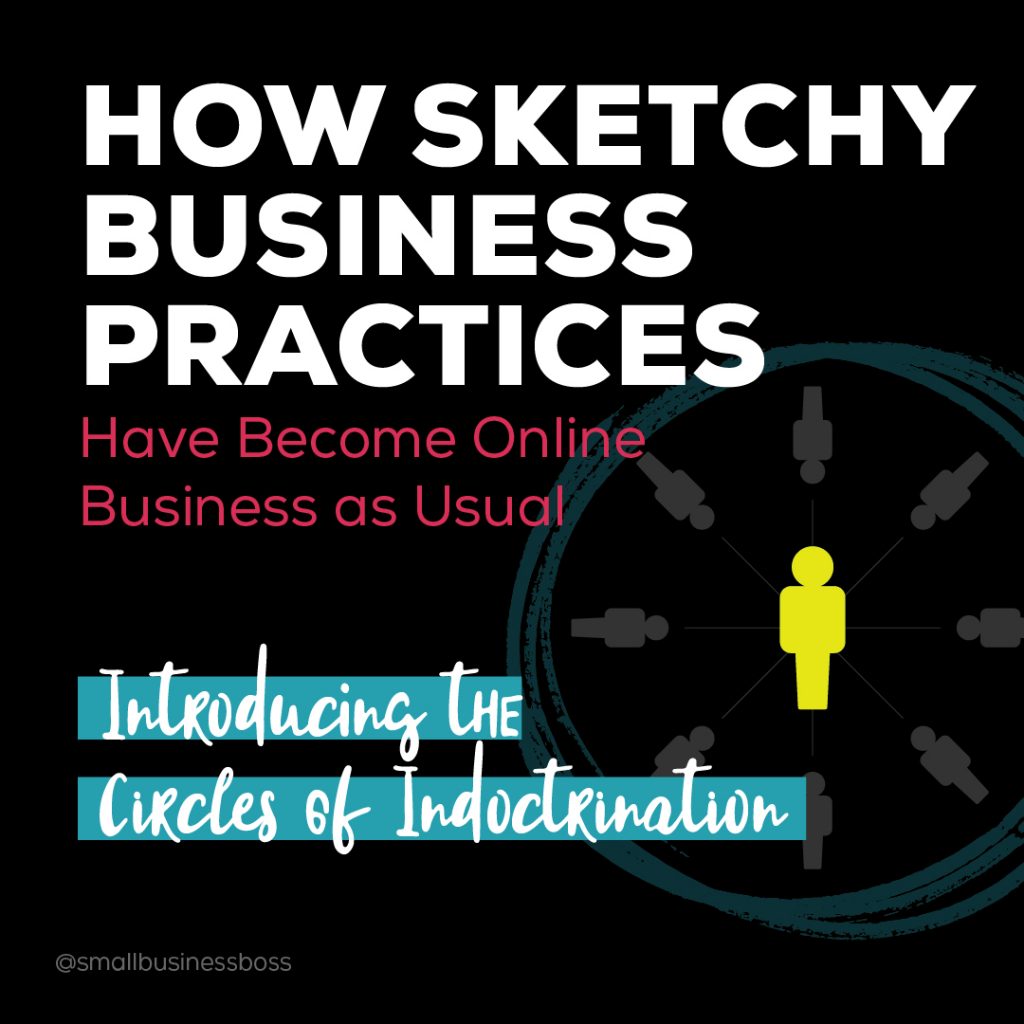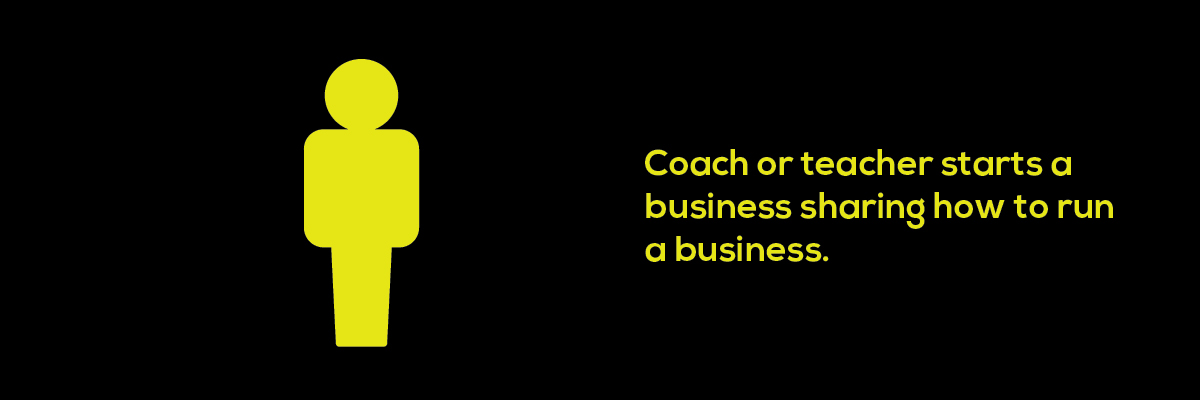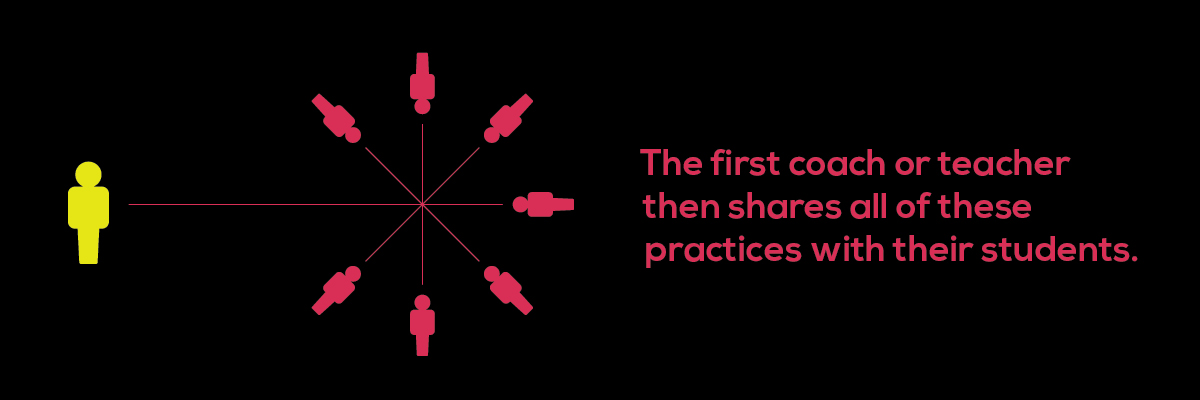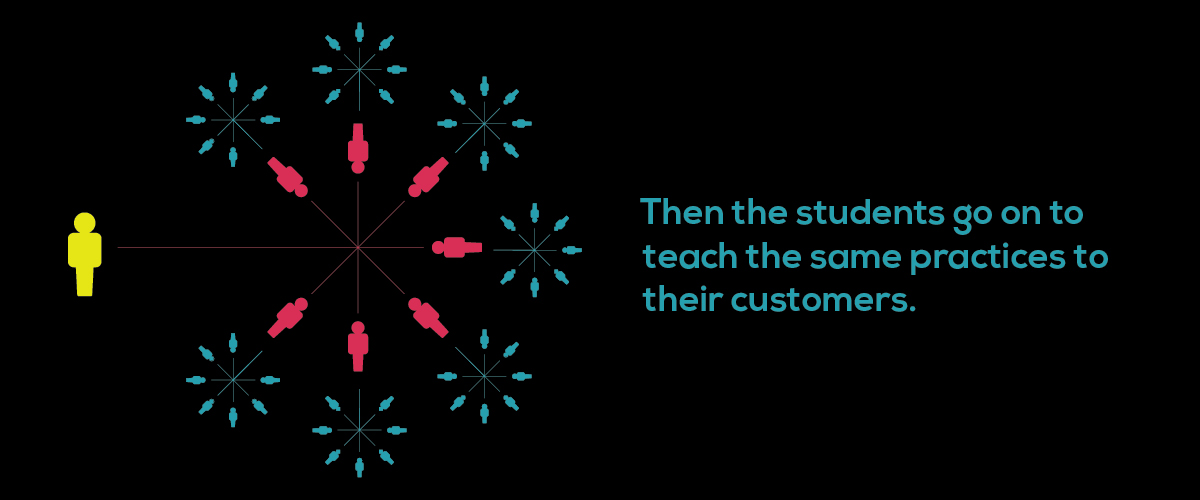
How Sketchy Business Practices Have Become Online Business as Usual
It’d be an understatement to say that 2020 has changed everything. As our society and lives as we know it are forever altered, that bleeds over into our businesses.
In the online business industry, I’m starting to see a shift that’s long overdue. More and more business owners are fed up, and are willing to speak up about unethical business practices. And for every person that’s giving voice to these problems, there are hundreds or even thousands more that are quietly pulling away.
What’s interesting is that very few of these business practices are new. They’ve been here since the day I arrived in the online business world in 2013, and they existed long before that.
Unfortunately, the online business industry has been built over countless years based on many, many sketchy business practices. And now, these practices have become online business as usual.
The result is that well-meaning business owners use these strategies and tactics thinking this is “just how things are done”. Generation after generation of online business owners continue to perpetuate practices that are toxic and harmful.
So, how did we get here?
How We’ve Been Indoctrinated
That’s a question I’ve been asking myself for a long time. And it’s one I’ve spent a lot of time researching and trying to figure out.
The answer is incredibly simple. Each new generation or group has been indoctrinated by one before them. The same way my Baby Boomer parents taught me that going to university was the path to financial security, online business leaders and teachers teach us to accept these tactics.
Please know that I don’t use the word indoctrination lightly. You can’t have a degree in political science like I do and throw that word around carelessly after studying totalitarian regimes.
Indoctrination is exactly what this is. Especially as the leader/follower dynamics in this industry (hello, celebrity entrepreneurs!) mean that each successive generation is trained to trust in the teachings, and to do so uncritically.
Compliance with the leader’s teachings or methodology is a condition of both membership in the group, and your business success. Many times, challenges to the leader are simply not tolerated, and dissenting voices will be punished.
The end result is an industry that’s essentially an echo chamber. An entire business ecosystem where harmful, unethical business practices persist as there’s no room for dissent.
How the Circles of Indoctrination Works
In trying to explain exactly how this indoctrination works in the online business market, I dug into the body of work around how ideas are spread, but the simplest explanation was in an unforgettable 80s commercial.
The Faberge Organics Shampoo commercial starring Heather Locklear talks about how she liked the shampoo so much that she told two friends. And then they told two friends and so on, and so on.
Overly simple? Totally. Here’s how this works in the online business world.

First, a coach, teacher, influencer starts a business sharing how to run a business.
Think of them as ground zero for the sketchy business practice, and much of what we see online today is rooted in early internet marketing. (You can read more about that background in Michelle Evans’ epic post here.)

Next, that person starts teaching those practices. This group then learns this is how things are done, and that they’re the conditions of success in the online business world.

Then the students go on to become the new coaches, teachers and influencers, aka the newest generation of celebrity entrepreneurs. Then this cycle continues on and on and on.
Trust is the Currency
The currency of the circle of indoctrination is trust. Sociologist Everett Rogers examined the importance of our interpersonal connections for spreading ideas in the Diffusion of Innovations.
While this theory is over 50 years told, it’s still incredibly relevant today. A key element of the theory is that most people rely on those they know and trust when deciding if they’ll accept an idea or not. While we may be influenced by mass communication, that peer-to-peer recommendation carries the greatest weight.
Within the online business echo chamber we’ve all learned the same things from the same teachers. That means our peers think much the same way we do, and we can easily look at what they’re doing and think “hey, they’re doing that, it’s clearly the right thing to do.”
Without many dissenting voices, ideas spread faster as we’re looking to our peers, who we trust, for guidance. When they buy that latest course or sign up for that $50k mastermind, we’re being given a signal that we should as well. When they launch using a scammy or spammy tactic, they’re normalizing that as the way we should be doing business.
There’s Safety in Numbers in an Uncertain World
In the book I’ll Have What She’s Having: Mapping Social Behavior by R. Alexander Bentley, Mark Earls and Michael J. O’Brien, the authors explain how we learn from those around us, and how copying is “an essential part of social evolution.”
While as a society, we frown upon copying per se, the authors argue that when we’re faced with an “unpredictable environment, copying is a basic technique.”
Business ownership is literally a textbook example of an unpredictable environment, so it’s easy to see how we can easily default to doing things the way others are doing them.
Their work explains how the advantage of copying is that we’re not alone and we know that someone else has done what you’re doing. In the case of online business, it means that by copying these business practices, we’re taking the safe route, and we’re not able to see how what we’re doing may be flawed.
I’ll Have What She’s Having also looks at how cooperation was an “evolutionary necessity for human survival” as humans didn’t want to get eaten by a T-Rex or sabertooth tiger. Prehistoric mammals aside, this explains why we prioritize cooperation and go with the group, often over our own self-interest.
While we’re not trying to prevent being eaten, we do want to preserve our reputation and our livelihoods. Even when we have a sense that a specific strategy or tactic may be questionable, it’s often easier for us to simply go with the most widely accepted or popular method.
As humans, we’re hard wired to prioritize our safety. As a result, we don’t speak up, we don’t challenge the online business status quo, and we continue engaging in problematic business practices.
Busting Out of the Online Business BS
As business owners operating in this market, it’s critical that we understand how we’re being played, and will continue to be stuck in these circles of indoctrination unless we actively work to break free from them.
If you’re reading this thinking “how did I fall for this?”, just know we all have to some degree. I definitely have, and I’ve had hundreds of conversations over the years with other business owners who have been sucked in as well. You’re in excellent company, so there’s zero need for shame.
The true goal of this post is for us to understand WHY this happens to us so we can engage our critical thinking.
Then, and only then, will we be ready to challenge the idea of online business as usual including the leader/follower mentality, mindset manipulation and practices that put profits before people.
As an industry, we can and need to do better. Take a stand for ethical business practices that help us all succeed.


